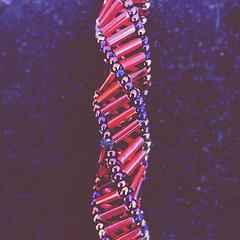photo credit: Peter Alfred Hess
“Kids these days” all have their questions. The truth is though, kids back in those days had the same questions, if not more. Back when sexually transmitted diseases were just discovered, the public and even doctors were baffled. Now that we’ve acquired more knowledge, people still decide to ignore the facts. Dismissing an embarrassing health class as a teenager bites back later in life. Sex has been a touchy subject then and now. However, now that the Free Press has a chance to present the awkward details, it needs to ask the experts.
What are some common misconceptions about sex?
Paula Hatcher (School Nurse)
Paula Hatcher (School Nurse)
Some common misconceptions about sex [are]:
‘It has to be a part of a relationship’–it doesn’t.
‘You cannot get pregnant the first time you have sex’–you can.
‘That there is some type of injury that happens to guys if they don’t get sexual relief’–there’s no danger. [It’s not true that] you cannot get some type of STD from someone that you know or someone who looks clean.Jayme Lisher (Heath Teacher)
A woman can’t get pregnant the first time: A woman’s chances for becoming pregnant are always the same, about 1 out of 20 — even if it is her first time. A female can become pregnant any time after she begins to ovulate. This may mean that a person can become pregnant before she even has her very first period (since she ovulates approximately 14 days before her period begins). Do not be pressured by comments like, “don’t worry, it’s your first time”, and don’t assume that a person may be too young (or too old) to get pregnant.You can’t get pregnant while on your menstrual cycle. Many women (and men) believe this myth. It is possible for a female to get pregnant at any time during her menstrual cycle. Generally, when you are having your period, it means that you are not ovulating. If this is the case, then you will not get pregnant. However, females with irregular or shorter cycles can actually ovulate during their period. Sperm can live inside a woman’s body for up to 5 days, so if you ovulate anytime within 7 days of having unprotected sex, you could become pregnant.
A Female Can’t Get Pregnant if the Male “Pulls Out” Before he ejaculates
This is a huge myth! Withdrawal is not always a reliable method, and there are several reasons for this. Once a male becomes aroused, he ejects pre-ejaculate fluid — this fluid can contain at least 300,000 sperm (and it only takes 1 to join an egg)! There is also the risk that he doesn’t pull out in time as, in the heat of the moment; it can be hard to keep control. Even if he ejaculates outside of the vagina, sperm can swim, so semen anywhere near the vagina can still lead to pregnancy.
Two condoms are better than one.
The problem is that the way condoms are designed; using two condoms at the same time could actually do more harm than good. It causes friction between the condoms that can actually cause more breakage and leakage. Only one condom should be used during sex.
The problem is that the way condoms are designed; using two condoms at the same time could actually do more harm than good. It causes friction between the condoms that can actually cause more breakage and leakage. Only one condom should be used during sex.
Myth: I can’t catch an STD from having oral or anal sex.
A lot of teenagers think that if you’re not having vaginal sex that you’re not really at risk for these infections. However, where there is a transmission of body fluids such as semen or blood, you run the risk for the infection to enter the body through orifices such as the vagina, penis, mouth or anus. Each is a direct entry point in to the body.
A lot of teenagers think that if you’re not having vaginal sex that you’re not really at risk for these infections. However, where there is a transmission of body fluids such as semen or blood, you run the risk for the infection to enter the body through orifices such as the vagina, penis, mouth or anus. Each is a direct entry point in to the body.
Myth: You can get an STD from a toilet seat.
That’s another myth that I still, to this day hear people saying is true. But it’s not. In general, the STD organisms don’t survive outside of the human body for very long. So there is zero proof that toilet seats are harboring viruses or bacteria–that when you sit down can be acquired.
That’s another myth that I still, to this day hear people saying is true. But it’s not. In general, the STD organisms don’t survive outside of the human body for very long. So there is zero proof that toilet seats are harboring viruses or bacteria–that when you sit down can be acquired.
Myth: You can only catch herpes when the other person is having an outbreak.
There have been a number of studies that have shown that people are still shedding the herpes virus after the sore clears, so they can still transmit it to a partner. There are also people who have never had symptoms of herpes that could carry the herpes simplex virus. They can be shedding the virus and transmitting it to a partner. This is why a condom should be used and a sexual background check of each partner should be known.
There have been a number of studies that have shown that people are still shedding the herpes virus after the sore clears, so they can still transmit it to a partner. There are also people who have never had symptoms of herpes that could carry the herpes simplex virus. They can be shedding the virus and transmitting it to a partner. This is why a condom should be used and a sexual background check of each partner should be known.
Misconception: If I have an STD, I’ll just take antibiotics and it will go away.
For the bacterial STDs, it is true that antibiotics are highly effective. About 95% or 98% of the time when you take the antibiotic your infection will go away. But sometimes damage has already been done if you’ve already had the infection for a while before you got treated.
For the bacterial STDs, it is true that antibiotics are highly effective. About 95% or 98% of the time when you take the antibiotic your infection will go away. But sometimes damage has already been done if you’ve already had the infection for a while before you got treated.
Viral STDs are harder to treat. There are medications to treat, but they don’t cure the infections. They make the symptoms less and make the virus less transmissible. Once you are off the medication for such viral STD’s as herpes and sometimes HIV, your virus can increase and you can be more likely to transmit it to a partner.Why do you think high school is the time most teenagers have sex?
Hatcher
High school is a time of discovery for young people–also a time for a little bit of rebellion. As they’re learning to move away from their parents and their parents’ rules and try to establish themselves, they realize this is probably not an activity that their parents would condone. So they might engage in it not only to learn, but to be a bit rebellious.Lisher
I ask my health students this question every semester during our sex education unit. I will quote my students on this question: “Peer Pressure, Hormonal changes, we think we are in love with that person, Curious, Sex is glamorized on television, music videos and movies and some feel it will be the same way, Rebellion, and Attention.”When should teenagers be looking out for STDs?
Hatcher
When they decide to have sex. Once the decision is made, you have got the obligation to protect your own body. Assume nothing.Lisher
*Teenagers should be looking out for STI’s if they become sexually active; this includes intercourse, oral sex and anal sex. The scary part is, some STI’s don’t have any symptoms and may go unnoticed for long periods of time, however can still be transmitted from person to person. When symptoms do occur, it can be hard to find who started spreading it around. Using protection such as a condom and knowing your partner’s sexual history are effective ways in avoiding STI’s/STD’s. However, Abstinence is the only 100% effective way to prevent STD’s from occurring.Where do you think teenagers get most of their information on sex? Where can/should they?
Hatcher
It’s been my experience that they get their information from each other, which is not usually very accurate. There are people who can steer you in the right direction with good answers, you just have to seek them out and it’s usually not your peers.Lisher
I feel teenagers get most of their information about sex from the internet, TV shows/movies and their peers. However, there are many courses offered here at Free State that provide great information about sexual health and decision making and I have seen many students here at Free State be a part of these courses. Being a good consumer of research and other information will also provide students with accurate knowledge about sex while hopefully leading to better decision making in the future.What do you think is the best way for teenagers to learn about sex?
Paula Hatcher (School Nurse)
Teachers, counselors, your parents are a great source of information. [Your parents have] had sex because they have you, so they’re a good source of factual information, too.Lisher
The best way for teenagers to learn about sex is through sexual education courses and trusted adults such as parents, physicians, counselors, teachers and other credible web-based resources.Can you dispel some myths on STDs and STIs?
Lisher
One of them is people who say that you’re their first partner and perhaps you’re not. [It is not true that] if you have sex and you wash immediately after you can get rid of an STD that way. Once intercourse has happened, the groundwork has been laid. You have to be responsible for your body and protect yourself.
What are some misconceptions on the HPV vaccine?
Lisher
…Although this vaccination protects against cervical cancer, some people – especially younger women think they will have total protection after vaccination, and that attending for cervical screenings will no longer be necessary. This isn’t the case; preventive screenings should be carried out every year by their doctor.Misconception that the HPV vaccine only protects against one type of cancer
It is of concern that most women may not realize that HPV vaccination can protect, not only against cervical cancer, but also against other genital cancers.
It is of concern that most women may not realize that HPV vaccination can protect, not only against cervical cancer, but also against other genital cancers.
How does the media portray sex?
Hatcher
The media makes sex very casual, very glamorous, and I don’t think that young people view it that way. I think they feel like the media portrayal in movies and even some television shows is how sex happens and that’s not the case. For young people it’s usually awkward and weird.Lisher
The media likes to glamorize sex and over exaggerate it by making it seem incredibly romantic, exciting and pleasurable. The media also uses sex to sell products and portray it in a very carefree manner where no consequences seem to come as a result. However, with certain reality shows such as Teen Mom and 16 and pregnant, the media has started showing sex (somewhat) in a different light with that of teen pregnancy and life with children at a young age.What is the best advice you can give for teenagers that are sexually active?
Hatcher
Stop, I would tell them to not do it. Your body ok [is] with it, you’re mature enough physically, but [there is] the emotional layer and [there are] differences between the way males and females in adolescent age view it. Woman of the age see it as commitment; men of that age don’t necessarily see it that way. Adolescent kids have got enough going on without adding that stress to their life. You could have a nice dating relationship, even a long term relationship, without the worry of STDs, pregnancy, someone going out on someone else.Lisher
My true advice would be this, unless you are ready for children, the risk to get STD’s, and emotional baggage, don’t start having it. However, I know that is not the case in certain situations so I would simply say, use protection and understand your partner’s history. Both will protect you from unplanned pregnancy and preventing STD’s. Also, get educated about sex and all that comes with it. There is more to sex than the act itself. Through education you can gain the knowledge needed to make the right choices for your future.















